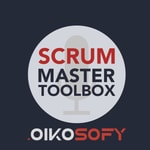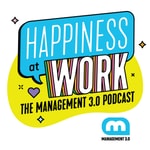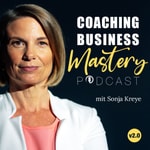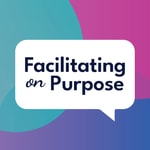Scrum Master Toolbox Podcast: Agile storytelling from the trenches – Details, episodes & analysis
Podcast details
Technical and general information from the podcast's RSS feed.

Scrum Master Toolbox Podcast: Agile storytelling from the trenches
Vasco Duarte, Agile Coach, Certified Scrum Master, Certified Product Owner
Frequency: 1 episode/1d. Total Eps: 200

Recent rankings
Latest chart positions across Apple Podcasts and Spotify rankings.
Apple Podcasts
🇨🇦 Canada - techNews
31/07/2025#29🇩🇪 Germany - techNews
31/07/2025#55🇩🇪 Germany - techNews
30/07/2025#38🇺🇸 USA - techNews
29/07/2025#95🇺🇸 USA - techNews
28/07/2025#63🇩🇪 Germany - techNews
27/07/2025#93🇺🇸 USA - techNews
27/07/2025#70🇬🇧 Great Britain - techNews
26/07/2025#93🇺🇸 USA - techNews
26/07/2025#55🇬🇧 Great Britain - techNews
25/07/2025#75
Spotify
No recent rankings available
Shared links between episodes and podcasts
Links found in episode descriptions and other podcasts that share them.
See allRSS feed quality and score
Technical evaluation of the podcast's RSS feed quality and structure.
See allScore global : 48%
Publication history
Monthly episode publishing history over the past years.
BONUS: Never Stop Experimenting—Building a Culture of Continuous Discovery | Stavros Stavru
samedi 21 juin 2025 • Duration 31:11
In this BONUS episode, we dive deep into the world of continuous experimentation with Stavros Stavru, Ph.D. in Organizational Transformations and founder of EdTech ventures AhaPlay and The Caringers. Stavros shares insights from his latest book "Never Stop Experimenting" and reveals how teams can maintain their discovery mindset while balancing the pressures of delivery.
The Exploration-Exploitation Dilemma"What would we choose? What we know, and try to exploit? Or go for something new, and better than we currently have?"
Stavros introduces us to one of the fundamental challenges facing modern teams: the tension between exploration and exploitation. He explains how teams often start with an exploration mindset, focused on solving real problems through discovery. However, over time, there's a natural shift from discovery to delivery, and teams forget the importance of continued exploration. The title "Never Stop Experimenting" serves as an anchor for teams to remember the value of maintaining their experimental approach even when delivery pressures mount.
Born from a Decade of Practice"All the techniques that I describe in the book were born during 10 years of practice."
The book isn't theoretical - it's grounded in real-world application. Stavros shares how every technique and framework in "Never Stop Experimenting" emerged from his extensive hands-on experience working with teams over a decade. This practical foundation ensures that readers get battle-tested approaches rather than untested concepts.
Software Development as Incremental Experiments"Experimentation requires a creative process."
Stavros addresses a common challenge: while teams understand the benefits of experimentation and want to experiment, they often face management resistance that ultimately demotivates the team. He emphasizes that viewing software development as a series of incremental experiments isn't just beneficial - it's absolutely necessary for teams to remain innovative and responsive to changing needs.
The Fatware Matrix: Putting Products on a Diet"The challenge: how do you convince the business that you need to spend some time removing features?"
One of the book's standout concepts is "The Fatware Matrix," which helps Product Managers recognize when their product is becoming bloated. Stavros introduces a practical tool combining the Kano framework with maintenance cost analysis to illustrate the true cost and impact of maintaining old features. This approach helped one team successfully remove features from their software, with stakeholders later commenting, "Now this is more transparent for us." The key is managing feature creep and software bloat before they become overwhelming.
The NSE Ratio: Optimizing Experimentation Rhythm"It's when we try something new that we learn what works. We need to change something on a regular basis."
The NSE (Never Stop Experimenting) Ratio measures how long teams wait before introducing new approaches or experimenting with their processes. Stavros explains how teams should define their NSE ratio as part of their team agreements, establishing a regular cadence for trying new things. This systematic approach ensures that learning and adaptation become embedded in the team's rhythm rather than happening sporadically.
Building a Safe-to-Fail Culture"Speak of your own failures. When we show our failures as leaders, we show the team that they can run their own experiments."
Creating a truly safe-to-fail environment requires leaders to model vulnerability and transparency about their own mistakes. Stavros emphasizes that leaders must give the example by sharing their failures openly, which gives permission for the rest of the organization to take risks and learn from their own experiments. This leadership modeling is crucial for establishing psychological safety around experimentation.
About Stavros Stavru
Stavros is a Ph.D. in Organizational Transformations and a leading voice in Agile coaching, leadership, and soft skills. Founder of EdTech ventures AhaPlay and The Caringers, he has delivered over 800 trainings and authored Never Stop Experimenting, a powerful toolkit for continuous improvement across teams and organizations.
You can connect with Stavros Stavru on LinkedIn, and check his book site at Neverstopexperimenting.com.
The Product Owner Mindset in Construction | Luca Cotta Ramusino
vendredi 20 juin 2025 • Duration 17:41
Read the full Show Notes and search through the world's largest audio library on Agile and Scrum directly on the Scrum Master Toolbox Podcast website: http://bit.ly/SMTP_ShowNotes.
The Great Product Owner: The Customer Value DetectiveLuca discovered that applying the Product Owner role in construction requires thinking like a customer and understanding that "it's the customer that defines what value is." The great Product Owner in construction acts as a customer value detective, constantly asking "which task out of these is going to move the yardstick?" They ensure that work always serves a customer—if you can't identify your customer, you should stop and find one. This mindset transforms how construction teams approach their daily huddles and project planning, viewing everything through the lens of customer value rather than just task completion.
The Bad Product Owner: The Waste AccumulatorThe bad Product Owner in construction fails to eliminate waste from processes, allowing non-value-adding activities to persist simply because "that's how we've always done it." They struggle to have candid conversations with customers and fail to tease out real requirements. Instead of transforming language into customer reality, they ask customers directly "what they want" without understanding that customers are better at identifying what they don't want than articulating what they need. This approach leads to projects that complete tasks without delivering real value.
In this segment, refer to The Last Planner Method.
Self-reflection Question: Can you clearly identify the customer for every piece of work your team performs, and how do you ensure that work truly moves the project toward completion?
[The Scrum Master Toolbox Podcast Recommends]
🔥In the ruthless world of fintech, success isn’t just about innovation—it’s about coaching!🔥Angela thought she was just there to coach a team. But now, she’s caught in the middle of a corporate espionage drama that could make or break the future of digital banking. Can she help the team regain their mojo and outwit their rivals, or will the competition crush their ambitions? As alliances shift and the pressure builds, one thing becomes clear: this isn’t just about the product—it’s about the people.
🚨 Will Angela’s coaching be enough? Find out in Shift: From Product to People—the gripping story of high-stakes innovation and corporate intrigue.
[The Scrum Master Toolbox Podcast Recommends]
About Luca Cotta Ramusino
Luca is a passionate Lean advocate with roots in the construction industry, now guiding teams through agile transformation. He thrives on exploring uncharted territory, then helping clients navigate it with confidence. Ask him how Lean and agile methods can unlock your team's potential in today's fast-paced, ever-evolving work environment.
You can link with Luca Cotta Ramusino on LinkedIn.
Breaking Free from Zombie Scrum | Stuart Tipples
lundi 9 juin 2025 • Duration 15:14
Read the full Show Notes and search through the world's largest audio library on Agile and Scrum directly on the Scrum Master Toolbox Podcast website: http://bit.ly/SMTP_ShowNotes.
Stuart shares a powerful story about joining a team that appeared to be thriving with Scrum ceremonies in place, only to discover they were performing "zombie scrum" - going through the motions without embracing agile thinking. The team functioned as a feature factory, never questioning requirements or truly collaborating. Stuart learned that agile isn't about what you do, but how you and the team think. He emphasizes that frameworks are just guardrails; the real focus must be on coaching people in agile values and principles. His key insight: know the rules before you break them, and remember that no amount of ceremony can rescue a team that lacks the agile mindset.
Self-reflection Question: Are your team's agile ceremonies creating real value and fostering collaboration, or are you simply going through the motions of "performative theatre"?
[Scrum Master Toolbox Podcast Recommends]🚀 Global Agile Summit 2025
Join us in Tallinn, Estonia, from May 18th – 20th, 2025, for an event that will inspire, challenge, and equip you with real-world Agile success stories.
🌍 Connect with global Agile leaders.
💡 Learn practical strategies for impact.
🔥 Break free from Agile fatigue and become a Pragmatic Innovator
[Scrum Master Toolbox Podcast Recommends]About Stuart Tipples
Stuart is an Agilista, a coach, Scrum Master, agile delivery. A husband, Dog Dad, and as Star Wars nerd. Positive disruptor. Passionate about helping teams and individuals build and ship awesome products to their customers. Stuart also blogs at www.yourebelscrum.com
You can link with Stuart Tipples on LinkedIn.
Why Product Management is Broken and How to Fix It | Anton Zaides
lundi 17 février 2025 • Duration 38:38
In this SPECIAL Substack Week episode, we dive deep into the current state of product management with Anton Zaides, a seasoned software engineer and leader. Anton shares his perspectives on why product management is fundamentally broken and offers practical solutions for organizations looking to improve their product development processes.
The Journey to Engineering Leadership"I started to search for content from other engineering managers and focused on practical insights."
Anton's journey spans 15 years in software engineering, from game development to DevOps and scaling startups. His transition to leadership revealed a gap in practical leadership content, which inspired him to start sharing his own experiences. Drawing from his four years as an engineering leader in a startup, Anton noticed patterns in product management that needed addressing, leading to his viral article on the topic.
The Broken State of Product Management"My team was working on a feature, that got canceled the day after it was released."
Product management faces several critical challenges in today's technology landscape. Anton identifies key issues including the development of unused features, increasing software complexity, and misaligned incentives that discourage innovation. Through his conversations with industry professionals, he discovered these problems were widespread, with teams frequently building features that get canceled or go unused. Despite following Agile methodologies, many organizations fail to properly evaluate feature impact, leading to wasted resources and frustrated teams.
Product Managers vs. Program Managers"The PM spent only 5% of his time on talking to customers."
One of the core issues Anton identifies is the transformation of product managers into glorified program managers. In many organizations, product managers spend most of their time managing JIRA tickets and dependencies rather than engaging with customers and driving innovation. The pressure to deliver on predetermined roadmaps, often dictated by executive teams, leaves little room for challenging assumptions or testing ideas with minimal scope. This shift away from customer interaction and strategic thinking has reduced the product manager's role to primarily managing internal processes.
Fostering Better Product Management"PM's should be like a founder for the product business."
To improve product management, Anton advocates for several key changes:
-
Offloading program management responsibilities to the team
-
Trusting product managers to make strategic decisions
-
Requiring specific industry knowledge and experience
-
Encouraging face-to-face customer interactions
-
Moving product managers closer to commercial roles
-
Involving engineers in customer conversations
"The more links you have in the communication chain, the worse the information gets communicated."
Anton proposes a shift towards a more functional organizational structure where Product and Engineering work together more closely. He emphasizes the importance of direct communication between technical teams and customers, warning against over-reliance on data alone. The solution involves bringing everyone closer to the business side and creating stronger networks between organizations and engineers.
Practical Implementation Tips"Get engineers to visit customers."
Key recommendations for improving product management include:
-
Involving engineers in customer and sales conversations
-
Giving engineers visibility through release messaging and communications
-
Establishing strong collaboration between engineering leaders and product managers
-
Ensuring product managers have deep domain expertise
-
Creating opportunities for direct customer interaction
-
Treating product managers as business owners rather than project managers
-
Anton’s Article that we review in this interview: “Product Management is broken, a change is coming”
-
John Cutle’s article on Product Manager’s Responsibilities
-
Anton’s Article on how to work effectively with your Product Managers
-
A book recommendation: Empowered by Marty Cagan
-
An episode of Lenny's podcast with Brian Chesky
[The Scrum Master Toolbox Podcast Recommends]
🔥In the ruthless world of fintech, success isn’t just about innovation—it’s about coaching!🔥Angela thought she was just there to coach a team. But now, she’s caught in the middle of a corporate espionage drama that could make or break the future of digital banking. Can she help the team regain their mojo and outwit their rivals, or will the competition crush their ambitions? As alliances shift and the pressure builds, one thing becomes clear: this isn’t just about the product—it’s about the people.
🚨 Will Angela’s coaching be enough? Find out in Shift: From Product to People—the gripping story of high-stakes innovation and corporate intrigue.
[The Scrum Master Toolbox Podcast Recommends]
About Anton Zaides
Anton Zaides is a seasoned software engineer and leader with 15 years of experience. From game development in Unity3D to leading DevOps and scaling startups, Anton's journey is marked by rapid growth. In 2023, he began sharing insights for engineering managers, amassing 15k newsletter subscribers in under a year. He writes a newsletter called "Leading Developers" that provides practical insights for engineering managers.
You can link with Anton Zaides on Substack.
BONUS: The Future of Agility: Data-Driven Insights With Simon Powers
samedi 15 février 2025 • Duration 45:04
BONUS: The Future of Agility, Insights from Industry Research with Simon Powers
Is Agile really dead? What does this wide research from industry reveal?
In this detailed, and insightful episode, we explore the current state and future of agility with Simon Powers, founder of The Deeper Change Academy. Simon shares insights from his comprehensive survey conducted between October and December 2024, which included 311 survey responses, 15 case studies, and 8 in-depth interviews with senior leaders.
The Current State of AgilityThe research reveals that while there's been a decline in traditional agile roles and certifications since October 2023, approximately 70% of organizations continue to invest in agile practices and transformations. However, these initiatives are often being rebranded and restructured, moving away from traditional "agile transformation" terminology.
"Organizations are still embracing agility and moving forward with change, but what they're doing is that the names they're using are changing. People aren't necessarily being employed as agile coaches, but the agile coaching responsibilities are still required within organizations."
Leadership Development and Organizational StructureA critical finding shows that leadership development in many organizations has stalled, creating two distinct organizational patterns:
-
Organizations focused primarily on operational efficiencies, resulting in decreased agility
-
Companies that have embraced coaching as a management tool and invested in leadership development
"The culture is very different depending on where you sit. When you're constantly competing against a head count of a developer versus that of a coach, you're less able to take the necessary risks, talk to the right people, do bolder experiments, and have more of an effect within the organization."
The Impact of Funding ModelsThe research identified that the funding model for agile initiatives significantly impacts their success. Centrally funded transformation efforts tend to be more successful than those funded through departmental headcount, as they provide greater authority and ability to drive change across the organization.
"Where people are hired or paid for within the head count, the overwhelming majority - like 90% of people who are in that position - are reporting that they do not have the authority to actually carry out the roles that they have responsibility for."
Collaboration and Remote WorkThe survey revealed interesting insights about optimal collaboration patterns in the post-pandemic era:
-
The sweet spot for office presence appears to be 2-3 days per week
-
Full remote work can significantly reduce collaboration effectiveness
-
Physical presence remains important for developing leadership skills and team dynamics
"Being at home 100% of the time is a big reduction of collaboration and working on things and growing these skill sets that are needed in leadership as well as within the teams."
Future Trends and ChallengesLooking ahead, the research highlights several key areas that will shape the future of agility:
-
Team structures remain a critical factor in software delivery capability
-
The need for better strategy tools at senior leadership levels
-
The importance of breaking down silos in software development
-
The continued evolution of agile practices to meet increasing complexity
"Organizations are going to need to sort out these problems that we've been slowly solving through agility for the last 20 years. We're just going to be continuing on, but what flavor? I don't know."
About Simon PowersSimon Powers is the founder of The Deeper Change Academy and author of "Change: A Practitioner's Guide to Enterprise Coaching." With over 20 years of leadership experience, Simon empowers HR leaders and department heads to create thriving, human-centered workplace cultures through tailored coaching, strategic advisory, and transformational programs.
You can link with Simon Powers on LinkedIn.
From Business Analyst to Product Champion, The Impact Of Vision In The PO Role | Mateusz Komander
vendredi 14 février 2025 • Duration 14:02
Read the full Show Notes and search through the world's largest audio library on Agile and Scrum directly on the Scrum Master Toolbox Podcast website: http://bit.ly/SMTP_ShowNotes.
The Great Product Owner: The Empowered Business AnalystMateusz shares an inspiring example of a Business Analyst who embodied the ideal Product Owner traits despite not having the official title. This proxy PO took genuine ownership of the platform, demonstrated strong decision-making abilities by saying "no" to stakeholders when necessary, and actively supported the team's ideas. Their success came from maintaining a clear vision for the product while remaining open to experimentation.
The Bad Product Owner: The Vision-less Decision MakerThe most significant anti-pattern Mateusz observed was a Product Owner lacking a clear vision for their product. This absence of vision made decision-making challenging and complicated the PO's ability to gain support for their ideas. The team struggled with last-minute requirements and a short-term roadmap that didn't provide adequate guidance. To address this, Mateusz suggests using simple visualization tools, focusing on product goals, and maintaining a clean backlog aligned with a 6-month roadmap.
[The Scrum Master Toolbox Podcast Recommends]
🔥In the ruthless world of fintech, success isn’t just about innovation—it’s about coaching!🔥Angela thought she was just there to coach a team. But now, she’s caught in the middle of a corporate espionage drama that could make or break the future of digital banking. Can she help the team regain their mojo and outwit their rivals, or will the competition crush their ambitions? As alliances shift and the pressure builds, one thing becomes clear: this isn’t just about the product—it’s about the people.
🚨 Will Angela’s coaching be enough? Find out in Shift: From Product to People—the gripping story of high-stakes innovation and corporate intrigue.
[The Scrum Master Toolbox Podcast Recommends]
About Mateusz Komander
Mateusz, is a Scrum Master at Heineken, and brings expertise from biotech and airline industries, excelling in Agile delivery and transformations. Skilled in Management 3.0, he fosters self-managed, innovative teams. Mateusz just launched a podcast on organizational transformation, Mateusz highlights how understanding team dynamics beyond the Scrum framework enhances collaboration and effectiveness.
You can link with Mateusz Komander on LinkedIn.
The Big Agile Questions for 2025: A Community Reflection With Your Submitted Questions
vendredi 14 février 2025 • Duration 22:24
This is a special episode, where I introduce the "Big Agile Questions" survey and review some of the questions that you've already submitted! Thank you all who did!
You can find the submission form here. Submit your questions, as we will be reviewing these in future episodes!
To join 25,341 other Agilists on our Newsletter (˜1 post/week), visit this page, and join.
The Power of Asking Better QuestionsAt every major turning point in history, from the Renaissance to the Industrial Revolution, progress has begun with asking better questions. The Agile movement itself started with the authors of the Agile Manifesto questioning traditional software development methods.
Now, in 2025, with significant changes in the industry including PMI's acquisition of the Agile Alliance, the community faces a crucial moment to shape its future direction through thoughtful inquiry and reflection.
"Throughout history, the biggest leaps forward have come from people willing to ask difficult, sometimes even quite challenging, questions."
The Future Beyond Agile🎯 Max asks: What comes after the Agile era? Should we enter the ‘SmartOrg’ era, where multiple toolboxes thrive?
The question of what comes after the Agile era emerges as a central theme in the community submitted questions. While Agile has matured over two and a half decades, it continues to evolve beyond its first-generation frameworks like Scrum, Kanban, and XP. The focus shifts toward viewing Agile as a broader philosophy that can be adapted locally with different frameworks, while remaining open to new approaches that may emerge, particularly with the advent of AI and other technological advances.
This is only of the many questions we're trying to answer the The Global Agile Summit 2025. We’ll be featuring world-class speakers like:
-
- Jurgen Appelo (Management 3.0)
- Gojko Adzic (Impact Mapping, Specification by Example)
- Clinton Keith (Agile for Game Development - EXCLUSIVE REVEAL!)
- …and many more!
At the Summit, we’ll be discussing these BIG Agile questions and working together on real-world, actionable solutions. If you want to be part of this movement, submit your session to share your story—or simply join us in Tallinn!" Go to GlobalAgileSummit.com and submit your session!
"Maybe we need to evolve towards a world where agile is more of a philosophy and that we locally adapt that philosophy to the different frameworks that we have at our disposal today and in the future."
Psychology and Business: Bridging the Gap🎯 Bob Marshall (a previous guest) asks: Why is there so much willful blindness to psychology in business and software development?
The role of psychology in business and software development remains underexplored, despite its crucial importance. Modern understanding of concepts like psychological safety and team dynamics challenges traditional management approaches based on Frederick Taylor's scientific management ideas. The Agile community must continue to incorporate insights from psychology to create more effective and humane workplaces.
"Agile is about people, but sometimes we treat teams, organizations, and even people like machines."
The NoEstimates Approach to Delivery🎯 Andrew Mitchell (a previous guest on the podcast) asks: How can we deliver sooner and meet product deadlines with better forecasting tools?
When faced with the challenge of meeting product deadlines and improving delivery forecasting, the traditional estimation approach has proven ineffective. Vasco's research shows that projects are on average 60% late, with larger projects experiencing even greater delays. The solution lies in shifting from rigid prediction expectations to simpler, more effective forecasting tools that combine historical data with human insights. The key strategy for Agilists is to focus on shorter, smaller projects that deliver to production, supported by practices like continuous integration and continuous delivery.
The NoEstimates movement already shows some options, practical approaches, that we can use to deliver on time. But we are just starting to discover these new approaches. There's more to come.
"If there's one thing we've learned from old school project management, the fading framework that is still the 600 pound gorilla in the room... estimates don't prevent delays."
Leadership in the Age of Specialists🎯 Zvone asks: How can we challenge leaders to step up their involvement while remaining trusted and respected?
The evolution of leadership in Agile organizations presents unique challenges. Leaders must balance involvement with trust, influencing while allowing teams to grow and express their potential. The community needs to develop coherent frameworks and tools specifically for leaders, similar to how Scrum serves development teams or product discovery serves product owners.
In this segment, we refer to David Marquet and his work with Turn The Ship Around! A must-read book for all Agile leaders.
"Leaders are working with teams of specialists, people who know more about the work that they're doing than their leaders do. And that's okay because the leader shouldn't be doing that work."
Executive Engagement and Transformation🎯 Liat Feren asks: How can we engage executives in Agile transformation?
Understanding and engaging with executives requires speaking their language and focusing on outcomes rather than frameworks. Success stories from the Global Agile Summit demonstrate how organizations can transform when executives are properly engaged and understand the value proposition of Agile approaches.
"Executives love outcomes. They don't really care for frameworks."
Submit your questions to our BIG Agile Questions survey! Let's continue to explore the future of Agile together!
About Vasco DuarteVasco Duarte is a thought leader in the Agile space, co-founder of Agile Finland, and host of the Scrum Master Toolbox Podcast, which has over 10 million downloads. Author of NoEstimates: How To Measure Project Progress Without Estimating, Vasco is a sought-after speaker and consultant helping organizations embrace Agile practices to achieve business success.
You can link with Vasco Duarte on LinkedIn and connect with Vasco Duarte on Substack.
Understanding Team Expectations: The Key to Scrum Master Success | Mateusz Komander
jeudi 13 février 2025 • Duration 12:16
Read the full Show Notes and search through the world's largest audio library on Agile and Scrum directly on the Scrum Master Toolbox Podcast website: http://bit.ly/SMTP_ShowNotes.
For Mateusz, success as a Scrum Master starts with understanding team expectations. He emphasizes the importance of regularly asking teams "What do you expect from me as your Scrum Master?" The responses not only reveal the team's previous experiences with Scrum Masters but also indicate their maturity level and understanding of the role. By asking this question periodically, Mateusz can track the team's evolution and adapt his approach accordingly.
Self-reflection Question: When was the last time you explicitly asked your team about their expectations of you as a Scrum Master, and how did their answers influence your approach?
Featured Retrospective Format for the Week: Adapt to Your Team's NeedsMateusz learned through experience that consistently changing retrospective formats can create chaos for teams. He recommends finding a format that works well for your specific team and sticking with it. For some teams, this might be Lean Coffee, while others might benefit from simpler models like "What works well/not so well/needs improvement." The key is to experiment initially, gather feedback after each retrospective, and then settle on what works best for your team.
[The Scrum Master Toolbox Podcast Recommends]
🔥In the ruthless world of fintech, success isn’t just about innovation—it’s about coaching!🔥Angela thought she was just there to coach a team. But now, she’s caught in the middle of a corporate espionage drama that could make or break the future of digital banking. Can she help the team regain their mojo and outwit their rivals, or will the competition crush their ambitions? As alliances shift and the pressure builds, one thing becomes clear: this isn’t just about the product—it’s about the people.
🚨 Will Angela’s coaching be enough? Find out in Shift: From Product to People—the gripping story of high-stakes innovation and corporate intrigue.
[The Scrum Master Toolbox Podcast Recommends]
About Mateusz Komander
Mateusz, is a Scrum Master at Heineken, and brings expertise from biotech and airline industries, excelling in Agile delivery and transformations. Skilled in Management 3.0, he fosters self-managed, innovative teams. Mateusz just launched a podcast on organizational transformation, Mateusz highlights how understanding team dynamics beyond the Scrum framework enhances collaboration and effectiveness.
You can link with Mateusz Komander on LinkedIn.
Scaling with Purpose, Managing Agile Team Growth While Avoiding Conway's Law Pitfalls | Mateusz Komander
mercredi 12 février 2025 • Duration 13:30
Read the full Show Notes and search through the world's largest audio library on Agile and Scrum directly on the Scrum Master Toolbox Podcast website: http://bit.ly/SMTP_ShowNotes.
Mateusz shares a compelling story about scaling an application development team that started small but grew rapidly. The team implemented a Flight Levels system, breaking into smaller groups of four people maximum to maintain focus and efficiency.
While this approach initially showed promising results, it eventually led to unexpected challenges as teams began forming silos around architectural layers, exemplifying Conway's Law in action. This experience highlighted the importance of carefully managing team identities and considering platform team approaches when scaling.
Self-reflection Question: How can you maintain cross-functional collaboration when scaling teams while preventing natural tendencies toward technical silos?
[The Scrum Master Toolbox Podcast Recommends]
🔥In the ruthless world of fintech, success isn’t just about innovation—it’s about coaching!🔥Angela thought she was just there to coach a team. But now, she’s caught in the middle of a corporate espionage drama that could make or break the future of digital banking. Can she help the team regain their mojo and outwit their rivals, or will the competition crush their ambitions? As alliances shift and the pressure builds, one thing becomes clear: this isn’t just about the product—it’s about the people.
🚨 Will Angela’s coaching be enough? Find out in Shift: From Product to People—the gripping story of high-stakes innovation and corporate intrigue.
[The Scrum Master Toolbox Podcast Recommends]
About Mateusz Komander
Mateusz, is a Scrum Master at Heineken, and brings expertise from biotech and airline industries, excelling in Agile delivery and transformations. Skilled in Management 3.0, he fosters self-managed, innovative teams. Mateusz just launched a podcast on organizational transformation, Mateusz highlights how understanding team dynamics beyond the Scrum framework enhances collaboration and effectiveness.
You can link with Mateusz Komander on LinkedIn.
When Process Becomes a Prison, Breaking Free from Over-Rigid Agile Team Practices | Mateusz Komander
mardi 11 février 2025 • Duration 14:40
Read the full Show Notes and search through the world's largest audio library on Agile and Scrum directly on the Scrum Master Toolbox Podcast website: http://bit.ly/SMTP_ShowNotes.
Working with an airline scheduling tool development team, Mateusz encountered a situation where rigid processes became a self-imposed prison. Instead of adapting to challenges, the team's response to missed deadlines was to add more process layers, particularly around testing.
The daily standups became status reports rather than collaboration opportunities, with team members focused on appearing busy rather than supporting each other. Through careful intervention, Mateusz helped transform their daily meetings to focus on future collaborations and mutual support needs.
Self-reflection Question: How can you identify if your team's processes are serving as protective measures or becoming barriers to effective collaboration?
Featured Book of the Week: Managing for Happiness by Jurgen AppeloMateusz recommends "Managing for Happiness" by Jurgen Appelo as an essential read for Scrum Masters. This book stands out for its practical combination of tools and real-life examples, helping create better environments for teams' daily work. Its inspirational approach makes it particularly valuable for Scrum Masters looking to introduce new practices and ideas to their teams.
In this segment, we also refer to Emotional Intelligence, by Daniel Goleman.
[The Scrum Master Toolbox Podcast Recommends]
🔥In the ruthless world of fintech, success isn’t just about innovation—it’s about coaching!🔥Angela thought she was just there to coach a team. But now, she’s caught in the middle of a corporate espionage drama that could make or break the future of digital banking. Can she help the team regain their mojo and outwit their rivals, or will the competition crush their ambitions? As alliances shift and the pressure builds, one thing becomes clear: this isn’t just about the product—it’s about the people.
🚨 Will Angela’s coaching be enough? Find out in Shift: From Product to People—the gripping story of high-stakes innovation and corporate intrigue.
[The Scrum Master Toolbox Podcast Recommends]
About Mateusz Komander
Mateusz, is a Scrum Master at Heineken, and brings expertise from biotech and airline industries, excelling in Agile delivery and transformations. Skilled in Management 3.0, he fosters self-managed, innovative teams. Mateusz just launched a podcast on organizational transformation, Mateusz highlights how understanding team dynamics beyond the Scrum framework enhances collaboration and effectiveness.
You can link with Mateusz Komander on LinkedIn.









